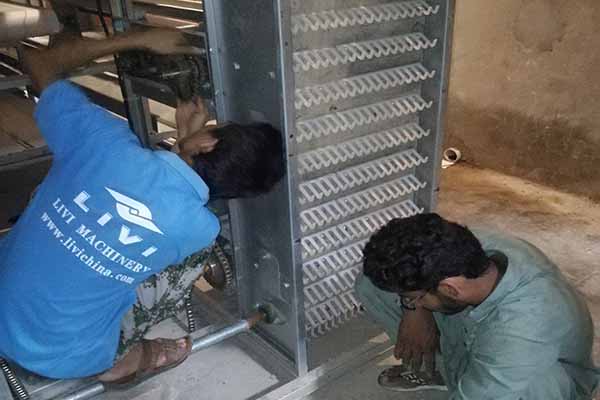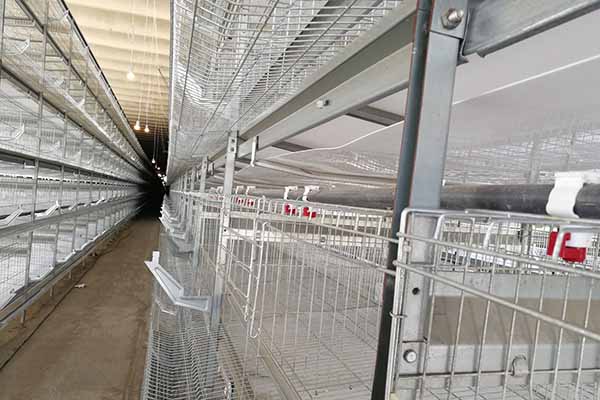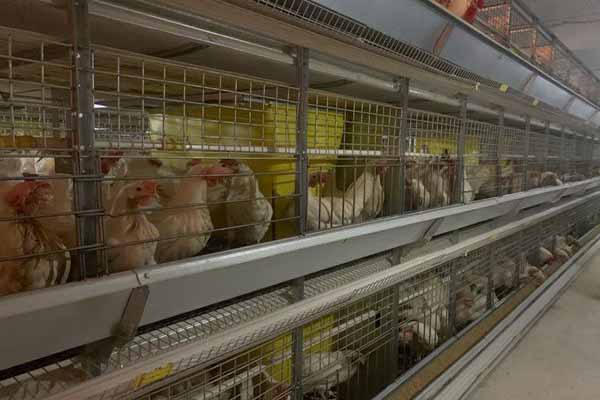Automated Equipment Supplier for Large Chicken Farms in Tanzania: Enhancing Efficiency and Productivity
Time : 2025-07-02
Large chicken farms in Tanzania are increasingly recognizing the importance of automated equipment to enhance their operations. As the demand for poultry products grows, so does the need for efficient and reliable automation solutions. In this article, we delve into the role of an automated equipment supplier for large chicken farms in Tanzania, discussing the benefits, the latest technologies, and the impact on the industry.

Introduction to Automated Equipment for Chicken Farms
Automated equipment has revolutionized the poultry industry, offering solutions that improve efficiency, reduce labor costs, and ensure food safety. For large chicken farms in Tanzania, investing in automated equipment is a strategic move that can lead to significant improvements in productivity and profitability.
Benefits of Automated Equipment for Large Chicken Farms
1. Increased Productivity
Automated systems can handle a wide range of tasks, from feeding and watering to monitoring health and collecting eggs. This reduces the need for manual labor, allowing farm managers to focus on other critical aspects of farm management.
2. Improved Food Safety and Quality
Automated systems ensure consistent and hygienic handling of feed, water, and eggs, reducing the risk of contamination. This leads to higher quality poultry products and increased consumer confidence.
3. Cost Savings
While the initial investment in automated equipment can be significant, the long-term cost savings are substantial. Reduced labor costs, lower energy consumption, and less waste all contribute to a more cost-effective operation.
4. Enhanced Animal Welfare
Automated systems can provide optimal living conditions for chickens, ensuring their health and well-being. This not only improves the quality of the poultry products but also aligns with ethical farming practices.
Key Features of Automated Equipment for Large Chicken Farms
1. Feeding Systems
Automated feeding systems can be programmed to deliver precise amounts of feed at specified times, ensuring th at chickens receive balanced nutrition. These systems can also detect feed wastage and adjust accordingly.
at chickens receive balanced nutrition. These systems can also detect feed wastage and adjust accordingly.
2. Watering Systems
Automated watering systems provide a constant supply of clean water, which is essential for the health and productivity of chickens. These systems can be designed to prevent water spillage and ensure efficient water usage.
3. Environmental Control Systems
Automated environmental control systems can regulate temperature, humidity, and air quality in chicken houses. This creates a comfortable environment for chickens, reducing stress and improving growth rates.
4. Egg Collection Systems
Automated egg collection systems minimize the risk of eggs being damaged or contaminated. These systems can be designed to collect eggs from various locations and transport them to storage or processing facilities.
5. Health Monitoring Systems
Automated health monitoring systems can detect early signs of disease in chickens, allowing for timely interventions. These systems can track individual bird health and provide valuable data for farm management decisions.
The Role of an Automated Equipment Supplier
An automated equipment supplier plays a crucial role in the success of large chicken farms in Tanzania. Here are some key aspects of their role:
1. Customized Solutions
Suppliers should offer customized solutions that meet the specific needs of each farm. This includes considering the size of the farm, the type of chickens, and the local climate conditions.
2. Technical Expertise
Suppliers must have a deep understanding of poultry farming and automation technologies. This expertise ensures that the equipment provided is reliable, efficient, and easy to maintain.
3. Training and Support
Suppliers should provide comprehensive training for farm staff on how to operate and maintain the automated equipment. Ongoing support and troubleshooting services are also essential to ensure the smooth functioning of the systems.
4. After-Sales Service
Reliable after-sales service is critical for the longevity and performance of the automated equipment. Suppliers should offer warranty coverage, maintenance contracts, and parts replacement services.
Case Studies: Success Stories in Tanzania
Several large chicken farms in Tanzania have successfully implemented automated equipment, leading to significant improvements in their operations. Here are a few case studies:
1. Farm A
Farm A, a large-scale chicken farm in Tanzania, invested in an automated feeding system and environmental control system. The automated feeding system reduced feed wastage by 20%, while the environmental control system improved chicken growth rates by 15%. The farm also experienced a 10% reduction in labor costs.
2. Farm B
Farm B, another large chicken farm, implemented an automated egg collection system. This system increased egg collection efficiency by 30% and reduced the risk of egg damage by 25%. The farm also noticed a decrease in the number of cracked eggs, leading to higher revenue.
Conclusion
Automated equipment is a game-changer for large chicken farms in Tanzania. By enhancing efficiency, improving food safety, and reducing costs, automated systems are paving the way for sustainable and profitable poultry farming. As the industry conti nues to evolve, investing in reliable and advanced automated equipment will be key to staying competitive.
nues to evolve, investing in reliable and advanced automated equipment will be key to staying competitive.











